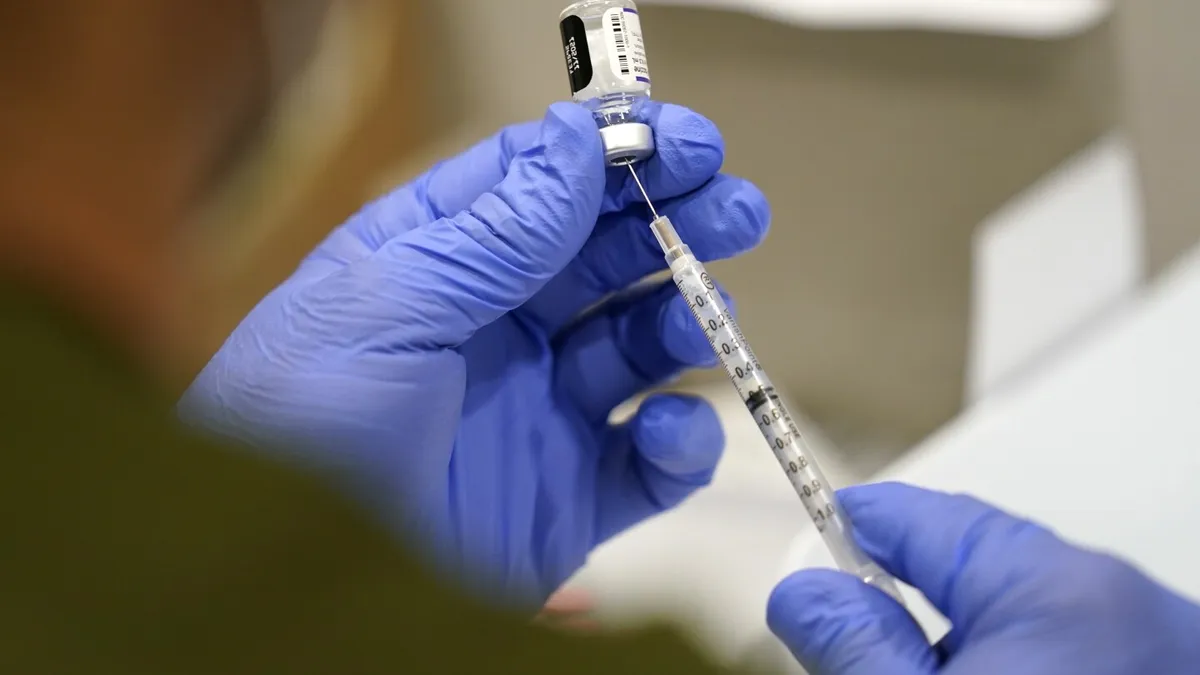
ATLANTA (AP) — A significant meeting of the Vaccine Advisory Committee took place recently under the leadership of the new U.S. Health Secretary, Robert F. Kennedy Jr., a prominent figure in the anti-vaccine movement. This first session raised critical questions regarding who will evaluate the committee’s forthcoming recommendations amidst ongoing discussions about vaccine policies. The meeting of the Advisory Committee on Immunization Practices (ACIP) spanned two days and addressed vaccine policy issues that had been previously postponed due to a sudden cancellation of a meeting scheduled for February by the U.S. Department of Health and Human Services.
Health policy researcher Jason Schwartz from Yale University expressed that the meeting’s routine nature would be notable, considering the “signals and alarms” indicating potential shifts or reductions in federal vaccination strategies. As the meeting commenced, members primarily participated via a webcast, engaging in discussions about the mpox vaccine and assessments of the ongoing flu and COVID-19 seasons.
The discussions took an intriguing turn when a CDC official highlighted the recent workgroup deliberations concerning the diminishing impact of the COVID-19 pandemic. The official posed a critical question about whether the committee would consider altering vaccination recommendations. One consideration was to shift from universal seasonal shots for all individuals aged six months and older to a more targeted approach, focusing on those with chronic illnesses or higher risk factors.
Committee member Dr. Denise Jamieson, dean of the University of Iowa’s medical school, expressed surprise at the notion of a risk-based recommendation, voicing concerns over its implementation and potential complications for patients seeking vaccinations covered by insurance. Similarly, Dr. Jamie Loehr, a family medicine physician from Itasca, New York, welcomed the idea but raised concerns about practicality and the implications of such a message. “COVID is still a fairly dangerous disease and very, very common,” he noted, emphasizing the severity of the situation with thousands of hospitalizations and deaths still occurring.
A formal vote on the proposed changes could occur at the upcoming committee meeting planned for June. The 15-member panel, comprised of external scientific experts established in 1964, plays a crucial role in recommending vaccination practices to the CDC director. Historically, CDC directors have routinely endorsed these recommendations concerning FDA-approved vaccines, which, while not legally binding, significantly influence medical practices and the allocation of funding for vaccination initiatives.
During the meeting, the committee was expected to cast votes on new recommendations for three different vaccines, including one targeting meningitis and another aimed at preventing the mosquito-borne illness chikungunya. However, uncertainty looms over who will be responsible for accepting the committee’s recommendations. The Trump administration appointed Susan Monarez as acting CDC director earlier this year, yet her awaited Senate confirmation has led her to recuse herself from regular director duties, leaving questions about the decision-making process for vaccine recommendations.
As the meeting unfolded, it became apparent that any committee recommendations made would likely be directed to Secretary Kennedy. When an Associated Press reporter inquired about the decision-making authority, a spokesperson from the Health and Human Services (HHS) department mentioned they were investigating the matter but could not provide an immediate answer.
During his Senate confirmation hearings, Kennedy asserted that he is not “antivaccine.” However, since assuming office, he has committed to re-evaluating childhood vaccinations and exploring potential links between these vaccinations and autism—a theory discredited by numerous studies, including at least a dozen conducted by CDC researchers.
The chair of the panel, Dr. Helen Keipp Talbot from Vanderbilt University, admitted uncertainty regarding who would ultimately decide to endorse any forthcoming recommendations. This ambiguity adds another layer of complexity to the already evolving landscape of vaccine policy in the U.S.
___
The Associated Press Health and Science Department receives backing from the Howard Hughes Medical Institute’s Science and Educational Media Group and the Robert Wood Johnson Foundation. The AP is solely accountable for all content.